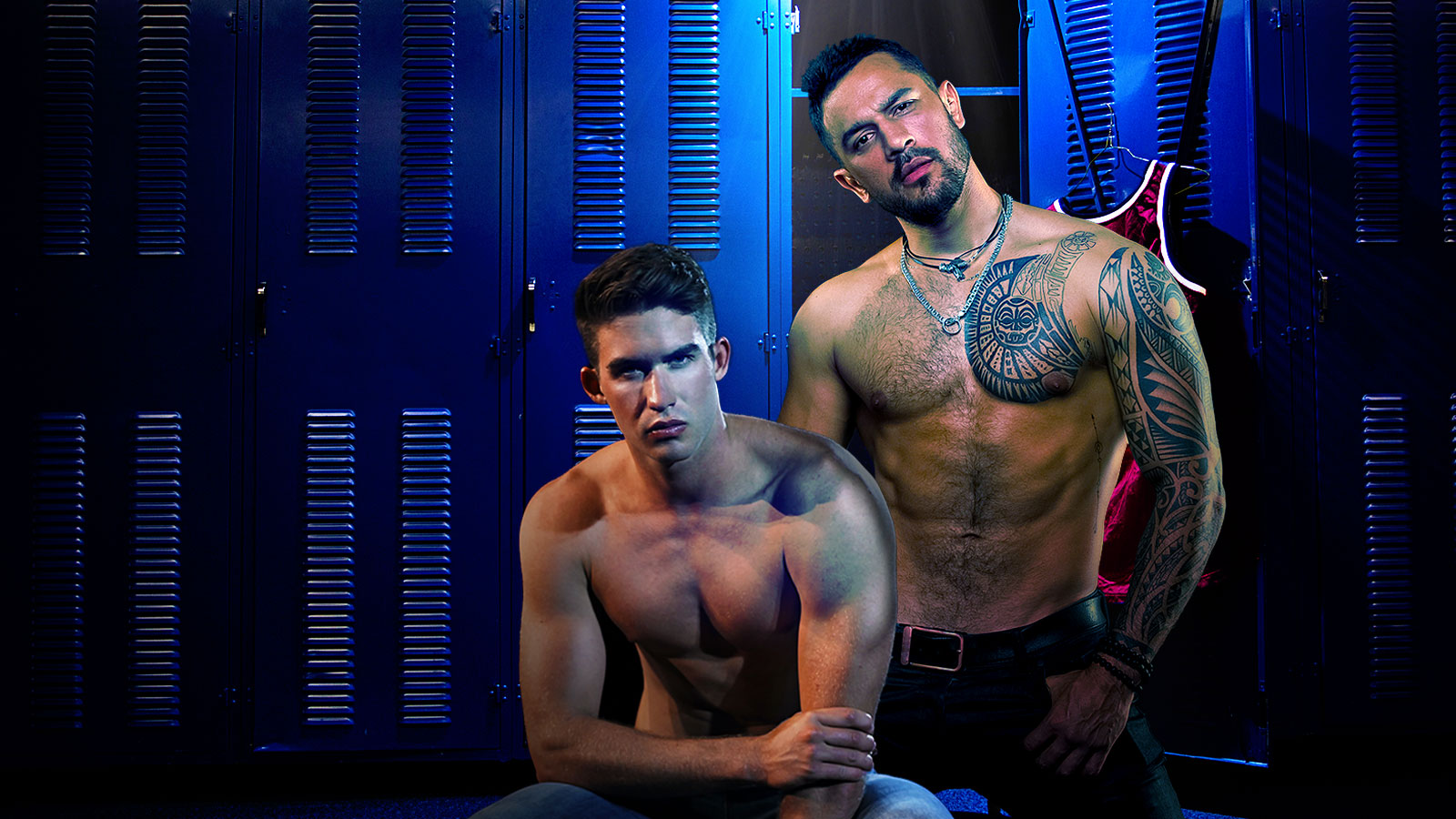
When I came out at 27, I dated a man in his 40s who made it a mission to turn me into his ex. He was a bearded, tattooed model who was physically superior in every way. For him, I was a project; one that took too long, evidently, since he dumped me. Claiming that I’d been keeping him from the gym, where he’d regularly fuck men in the shower without me knowing.
After him, I dated another man in his 40s. This man would Facetime me every hour to keep tabs on me and gave me an STI. Not once but three times, because he was cheating and never got tested. (True story: the woman at the clinic had to break the news to me. Because I was convinced that I must have gotten it from a toilet seat).
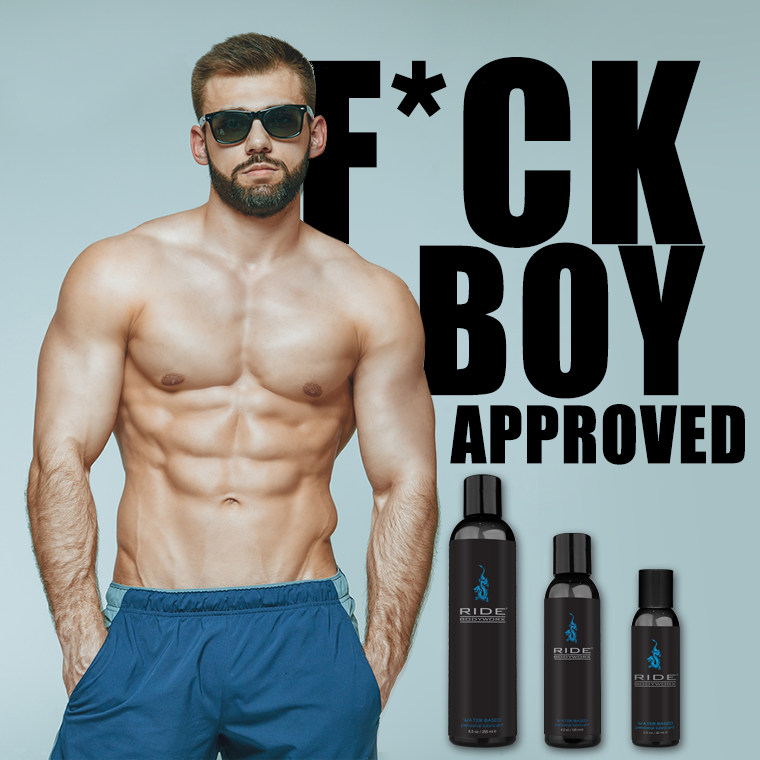
Despite these experiences, I continued dating daddies since not all daddies are duds (just the ones I’m attracted to, ha!). Like a moth to a flaming elder, I, and many gay men, cannot seem to escape the hair-fisted clutches of a daddy. Curious as to why I brought the question to our community and a queer therapist.
Of the many theories tossed my way, the perception that gay men have daddy issues was by far the most popular.
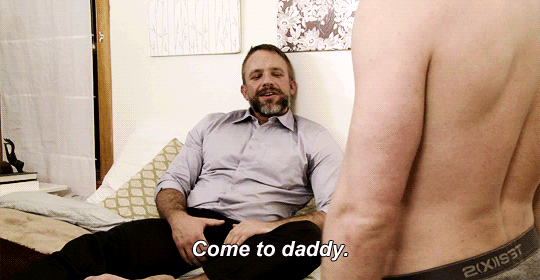
Connor, 26, says gay men love daddies because they represent “a surrogate father figure many of us didn’t have.” In other words: many queer men lack a crucial bond with their fathers that they seek that connection in their romantic life.
Dr. Joe Kort, Ph.D., agrees with the theory and defends the behavior. Saying, “It’s normal that we work out parental issues in our romantic relationships. Everyone does.”
I also noticed two words one often associates with father figures, “comfort” and “stability”. Were mentioned a lot while conversing with individuals about their attraction toward daddy types. So as reductive as this theory seems, it does have some merit.
“I’m partly driven by the daddy stereotype that they’d be more prone to protecting/providing,” Garrett, 31, says. “In my mind, any daddy I see has a better job than me and would handle tense situations so I wouldn’t have to.”
James Rose, a queer activist, writer, and educator, is not as convinced. “I’ve dated a bunch of daddies.
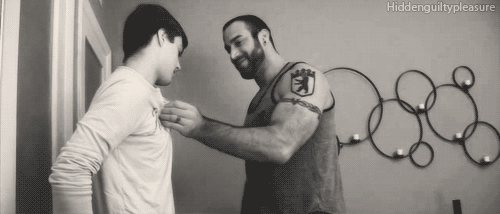
And my father and I are incredibly close and speak often and openly about my queerness,” they say. “It’s something he loves about me, so I don’t externally seek much validation for my queerness from other (older) men.”
Instead, they suggest the attraction is symbiotic. “So many older men are attracted to younger men because of their innocence, naivete, and because they physically embody the media standard of beauty,” they say. “Younger people who may be struggling with validation and self-acceptance may accept the affection from older men and form a schema around the daddy type.”
Many gays confessed they were drawn toward daddies for their masculine appeal. “Daddies visually represent everything I love about men: the facial hair, the body hair, the big arms, etc.,” Dan, 34, says. “It’s the ruggedness for me,” Brodie, 30, concedes. “Daddies represent peak masculinity.”
Since we’re societally conditioned to associate masculinity with strength and power, the more hyper-masculine a man presents––think Tom of Finland––the more they’re perceived as stable and comforting companions, which is very appealing for somebody who wants to feel loved and cared for.
With masculinity comes an ill-informed association with dominance.
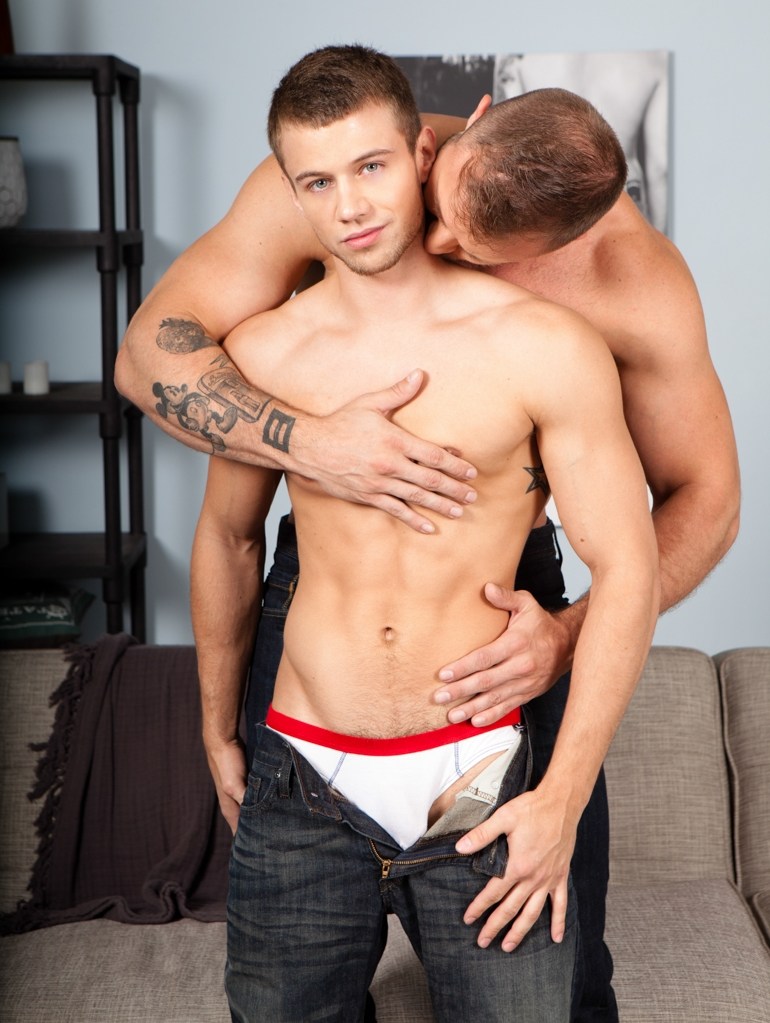
Meaning if you’re submissive, you may naturally be drawn to someone bigger, stronger, older, and more mature than you. The daddy archetype is often all three, though daddies can be any size, shape, and age.
“It could also just be the eroticization of the younger-older dynamic,” Dr. Kort says. “Our gay male culture doesn’t value mentoring or guidance and having elders. Obviously, this is not mentoring or guidance directly, but it might be a form of it sexually.”
James’s last theory is one of my favorites. They assume that, since older men grew up in a far more homophobic society than the current generation, that many men in their 30s and 40s are having the same queer “emotional renaissance” (i.e.: coming out, exploring their sexual identity, etc.) as younger gays, who’ve generally been brought up in a more progressive climate.
“I’ve noticed this countless times in NYC. I’ll be on a date with a man whose sexual and emotional development, as it relates to queerness, is around the same as mine, though I might be 15 years younger,” they say. “If you’ve had to repress your sexuality, it’s understandable that your emotional development has been delayed and may not mirror straight/cis peers.”
Another quality popular among daddy-lovers is their maturity, which makes them more confident, less dramatic, and less likely to play games when making a romantic connection, which is all too common in our community. A few also said daddies make them feel more appreciated and less disposable. Of course, given their experience, daddies have a reputation for being better in bed as well.
Clearly, there is no correct theory here––but it was fun to ruminate on, don’t you think? Maybe it’s not all that deep and we like what we like. Who knows? As long as it’s not doing you any harm, you keep riding that daddy dick and love/fuck whoever the hell you want.

Bobby Box is a freelance writer and editor. He writes about sex and relationships and men’s lifestyle topics for other publications and websites such as NewNowNext.com, Advocate.com, Bustle.com, AskMen, Playboy, Elle, MANdatory, Elite Daily, and more.

Leave a Reply